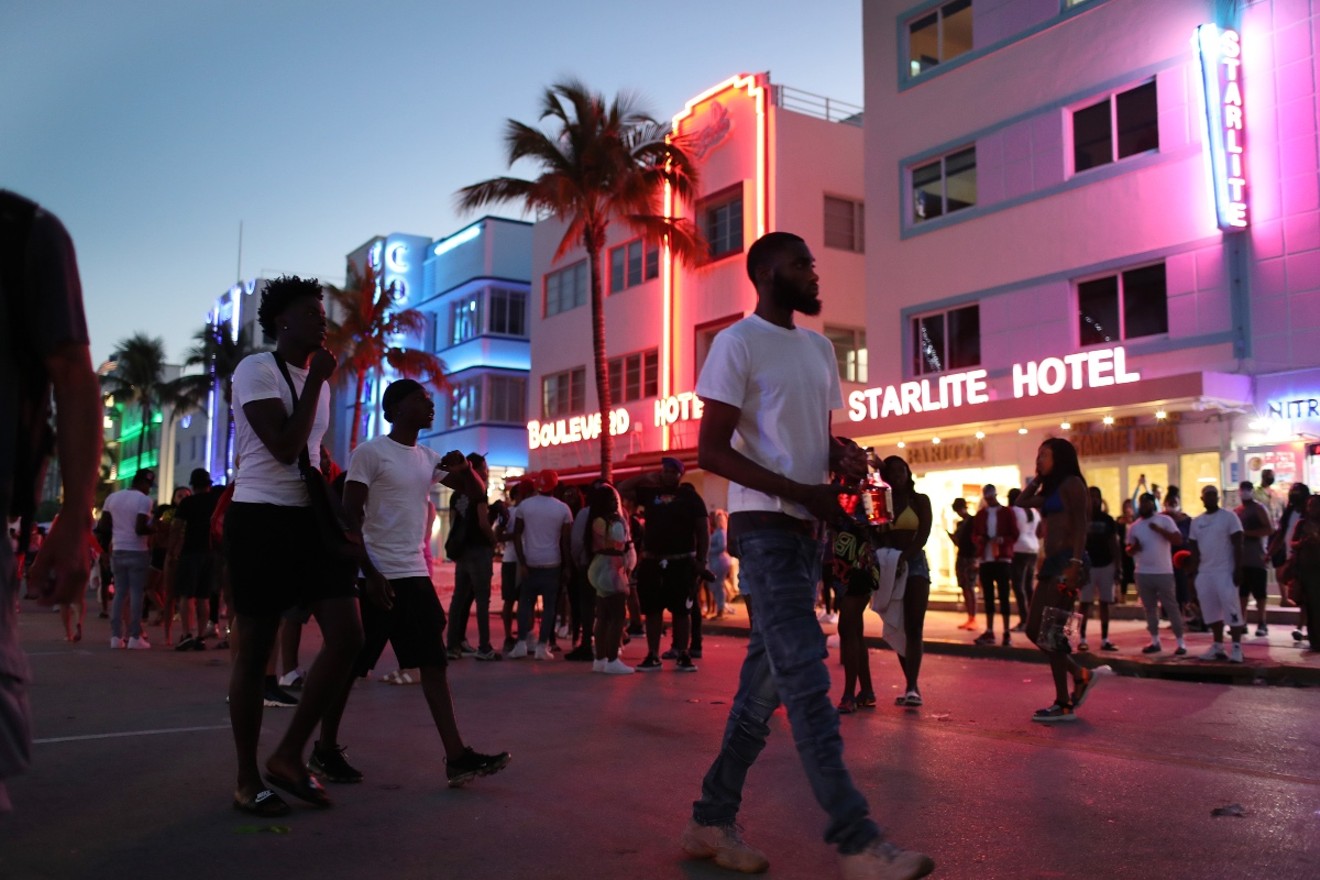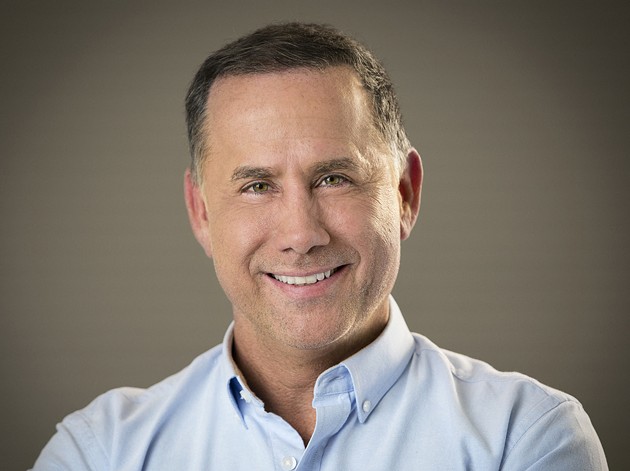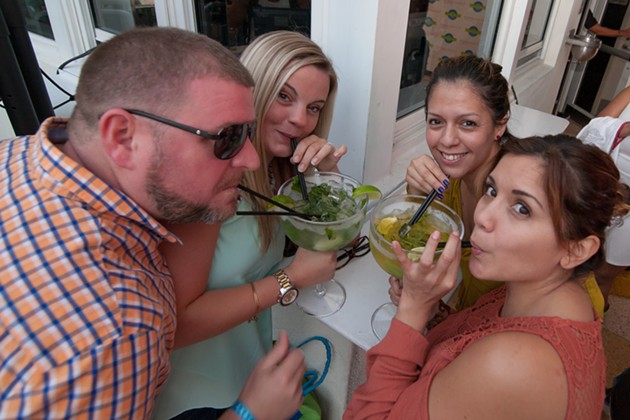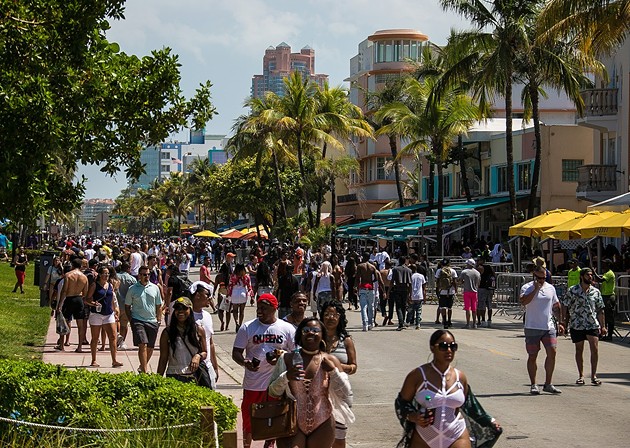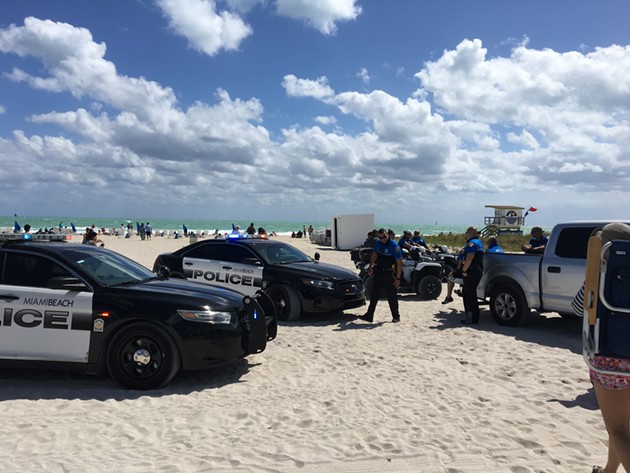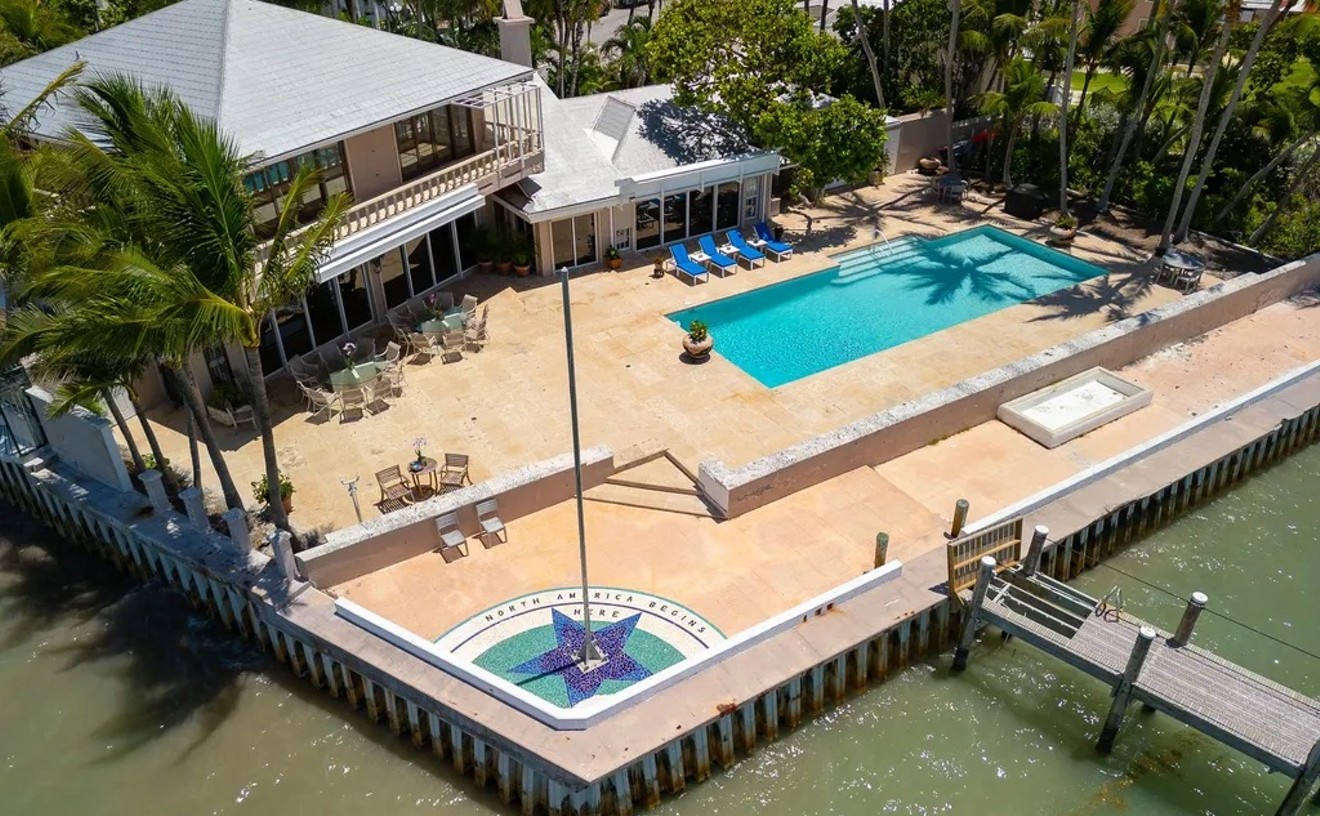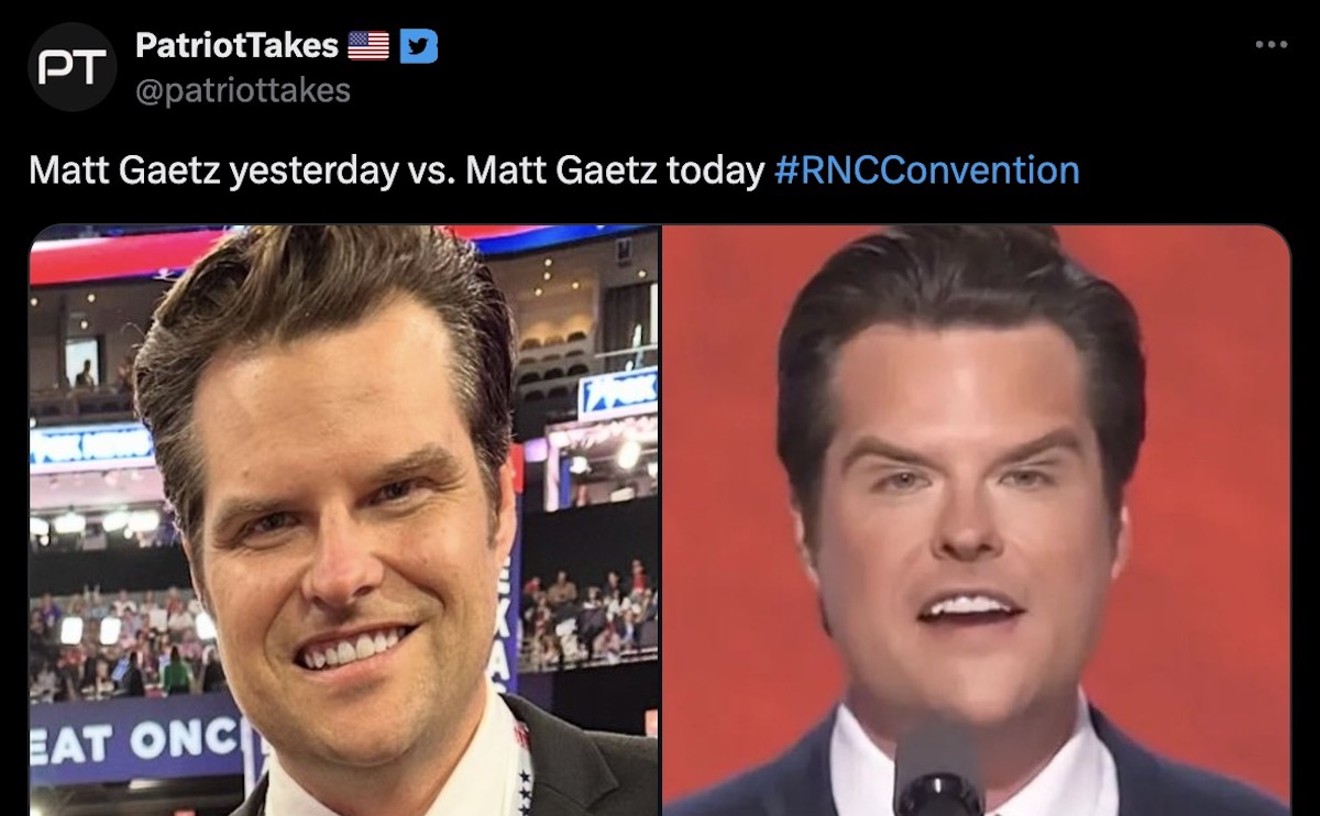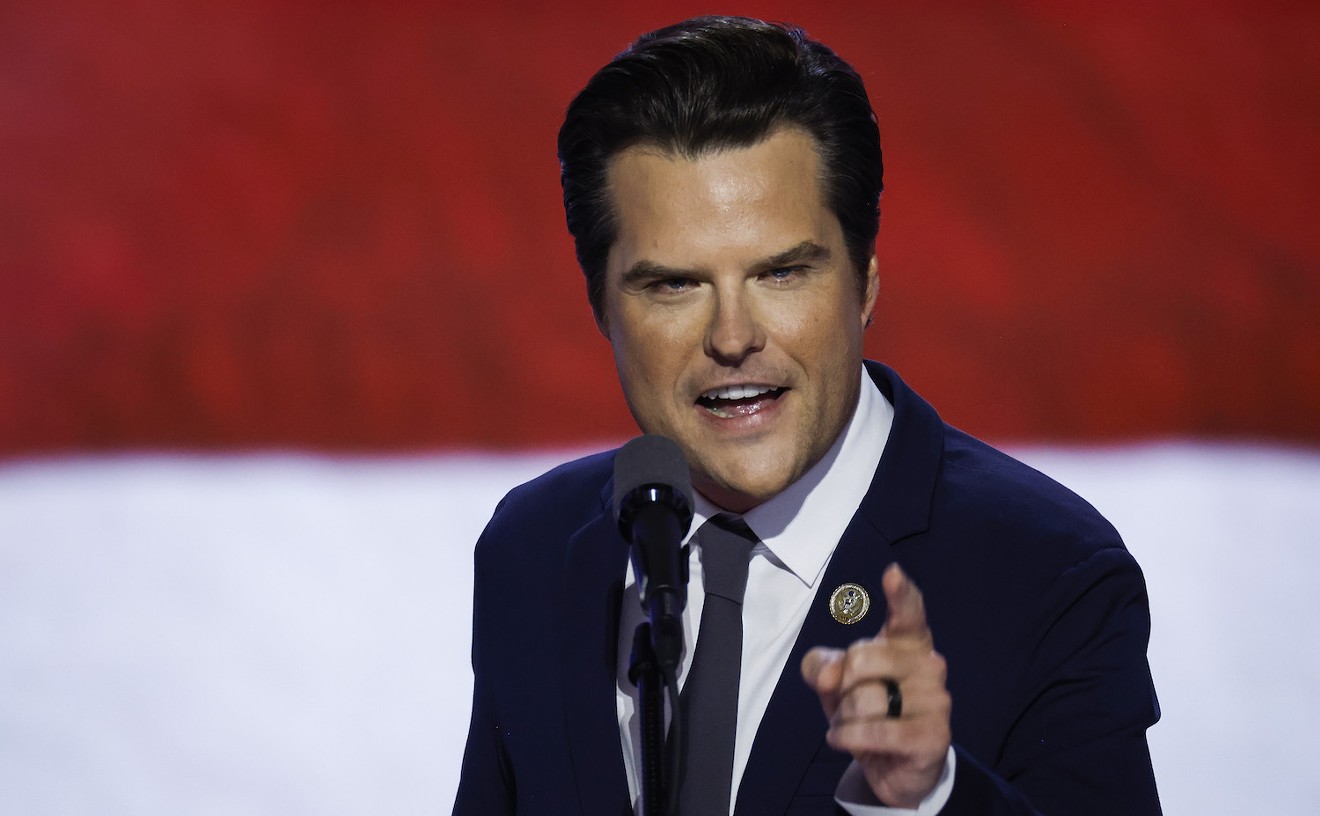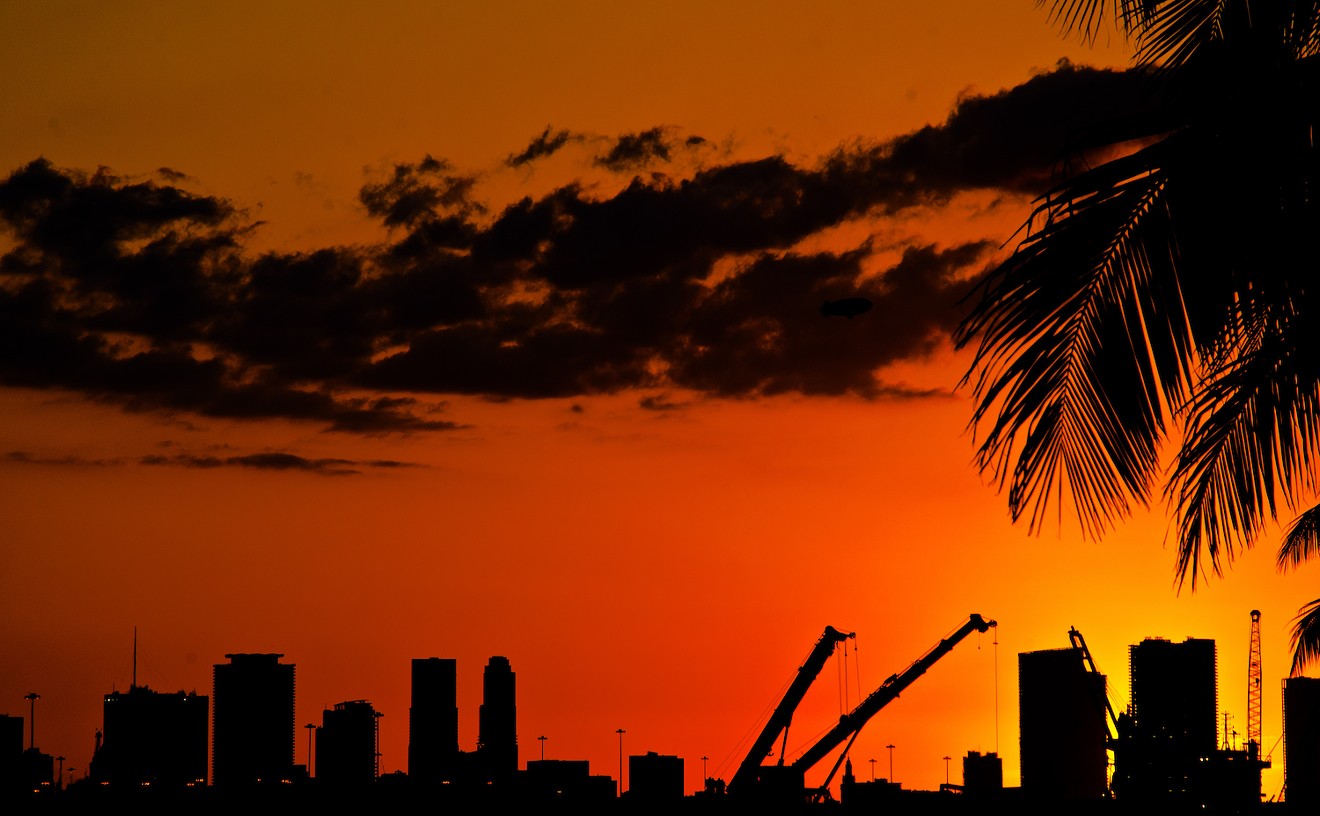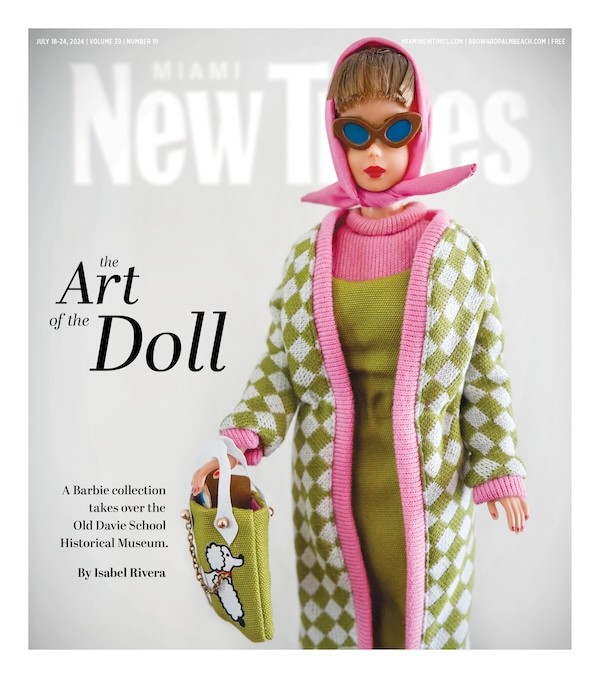Last month, Miami Beach commissioners voted on a measure to lower the volume on music and roll back last call from 5 a.m. to 2 a.m. in the city's bustling South Beach entertainment district.
The Clevelander, one of the city's iconic institutions, put up a fight. Lawyers representing the hotel filed a lawsuit against the city in an attempt to keep selling alcohol between 2 a.m. and 5 a.m. and to get permission to play music above ambient levels. Last week, a judge sided with the hotel and ruled that the city had improperly enacted the measure.
In the court complaint, the Clevelander's lawyers argued that the city had "declared war on South Beach's famed Entertainment District."
But the 2 a.m. last call is only the latest in a series of attempted crackdowns on the party crowds, booze, and noise. Here's a brief timeline of Miami Beach's "war" on Ocean Drive.
April 2015: During a city commission meeting, then-Miami Beach Mayor Philip Levine proposed banning alcohol sales past 2 a.m. at sidewalk cafés. Levine pretty much called Ocean Drive a gross, drunken mess.
"It's turning into a terrible place that's become a blight, a cancer that spreads to our entire city," the mayor said.
May 2015: Miami Beach commissioners voted to ban all outdoor booze sales after 2 a.m. Several restaurant owners slammed the move and argued that early-morning alcohol sales weren't the problem. But Levine defended the commission's decision and hinted that there was more work to be done.
"We don't believe a 2 a.m. sidewalk prohibition is the be-all, end-all for cleaning up Ocean Drive," Levine said at the time. "We believe it's one small step in a long journey to bringing back Ocean Drive to its iconic nature, where locals actually enjoy going and families enjoy going."
July 2016: Levine proposed an ordinance to limit alcohol sales after 2 a.m. on Ocean Drive between Fifth and 15th streets. Miami Beach commissioners ended up postponing the ordinance and discussing other possible solutions.
June 2017: After a Memorial Day weekend marked by violence, Miami Beach commissioners unanimously agreed to let voters decide whether to limit alcohol sales in the city.
November 2017: A referendum appeared on the ballot asking voters if the city should adopt an ordinance rolling back last call at outdoor venues from 5 a.m. to 2 a.m. But voters wanted the party to continue. The referendum failed.
April 2019: Miami Beach was not having it with spring break 2019. The city deployed officers in riot gear to patrol the beach and had paddy wagons at the ready to arrest lawbreaking revelers. The mayor and commissioners were so fed up, they proposed a series of ordinances to crack down on promoters, bars serving alcohol to minors, and out-of-control sidewalk cafés.
May 2019: Miami Beach officials sought to make the city even "less pleasant" for future 2020 spring breakers by increasing police presence, closing bars and cafés at midnight, and turning off the music on Ocean Drive.
April 2021: After a rowdy spring break that made national headlines during the ongoing coronavirus pandemic, Mayor Dan Gelber once again proposed a 2 a.m. alcohol cutoff in the entertainment district.
May 2021: City commissioners passed the aforementioned 2 a.m. last call. Clevelander attorney Alexander Tachmes immediately vowed to take the fight to court.
"We are definitely suing," Tachmes told the Miami Herald. "What they’ve done...is illegal and it's also really bad policy."

Audio By Carbonatix
[
{
"name": "Air - MediumRectangle - Inline Content - Mobile Display Size",
"component": "19274298",
"insertPoint": "2",
"requiredCountToDisplay": "2",
"watchElement": ".fdn-content-body",
"astAdList": [
{
"adType": "rectangle",
"displayTargets": "mobile"
}
]
},{
"name": "Editor Picks",
"component": "17482312",
"insertPoint": "4",
"requiredCountToDisplay": "1",
"watchElement": ".fdn-content-body",
"astAdList": [
{
"adType": "rectangle",
"displayTargets": "desktop|tablet"
},{
"adType": "rectangle",
"displayTargets": "desktop|tablet|mobile"
}
]
},{
"name": "Inline Links",
"component": "18711090",
"insertPoint": "8th",
"startingPoint": 8,
"requiredCountToDisplay": "7",
"maxInsertions": 25
},{
"name": "Air - MediumRectangle - Combo - Inline Content",
"component": "17482310",
"insertPoint": "8th",
"startingPoint": 8,
"requiredCountToDisplay": "7",
"maxInsertions": 25,
"watchElement": ".fdn-content-body",
"astAdList": [
{
"adType": "rectangle",
"displayTargets": "desktop|tablet"
},{
"adType": "rectangle",
"displayTargets": "desktop|tablet|mobile"
}
]
},{
"name": "Inline Links",
"component": "18711090",
"insertPoint": "8th",
"startingPoint": 12,
"requiredCountToDisplay": "11",
"maxInsertions": 25
},{
"name": "Air - Leaderboard Tower - Combo - Inline Content",
"component": "17482313",
"insertPoint": "8th",
"startingPoint": 12,
"requiredCountToDisplay": "12",
"maxInsertions": 25,
"watchElement": ".fdn-content-body",
"astAdList": [
{
"adType": "leaderboardInlineContent",
"displayTargets": "desktop|tablet"
},{
"adType": "tower",
"displayTargets": "mobile"
}
]
}
]

